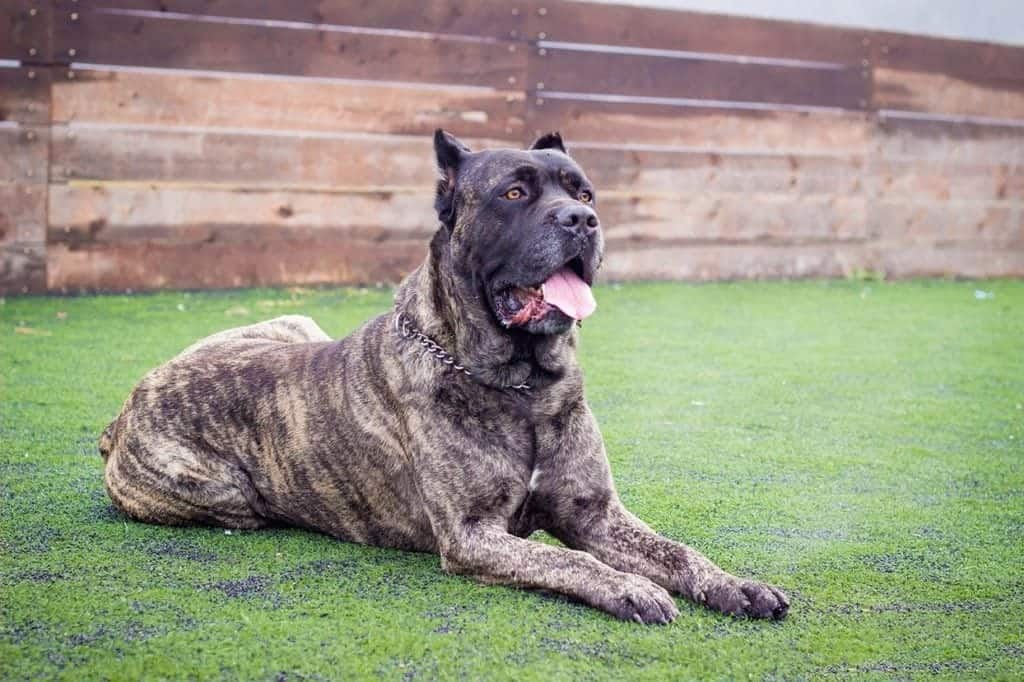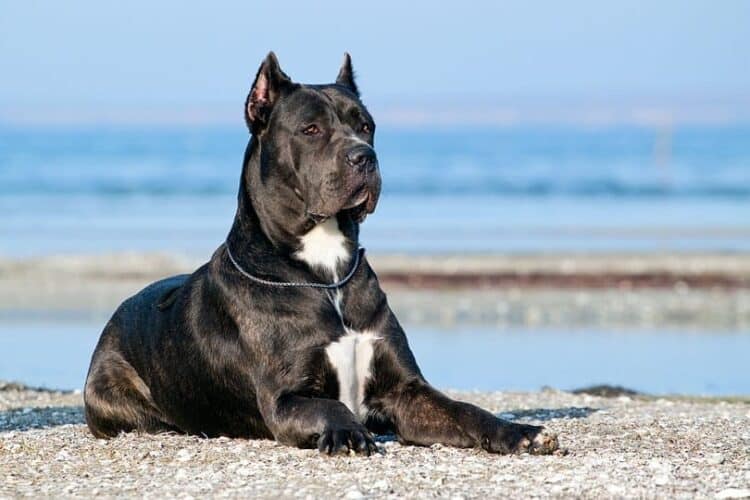Sadly, Cane Corsos are not hypoallergenic. However, no dog out there is truly hypoallergenic—which is not good news for the 10 million pet allergy sufferers. Those with a true allergy often won’t get any respite from “hypoallergenic” breeds. Therefore, it doesn’t really matter that the Cane Corso doesn’t fall into this category.
Those with true allergies are allergic to the proteins a dog produces. Cane Corsos produce the same proteins as all other dog breeds, which can be found in their skin, saliva, and urine. Loose fur can help spread these allergies around the house, but those with allergies are not actually allergic to their fur.
All dogs have, skin, saliva, and urine. Therefore, all dogs produce these allergens. Sadly, this means that hypoallergenic dogs simply don’t exist. Typically, dogs advertised as “hypo-allergenic” simply don’t shed, though that doesn’t mean they won’t produce an allergy response.
In fact, one study found that homes with hypoallergenic dogs had just as many allergens as homes with non-hypoallergenic breeds. Therefore, there is no actual correlation between the breed and the number of allergens they produce.
Not All Proteins are Equal
Those with dog allergies are rarely allergic to all the proteins dogs make. Many are allergic specifically to Can F1, which also happens to be the most common protein dogs produce. All dogs produce this protein, so those allergic to Can F1 will need allergy treatments anytime they are around dogs.
However, other proteins are not produced by all dogs. For instance, male dogs produce a specific protein in their prostate. According to some sources, up to 40% of those with dog allergies are only allergic to this protein. As you’d imagine, female dogs do not have prostates. Therefore, they do not create this protein. Male dogs that are neutered do not produce this protein, either.
If you happen to only be allergic to this protein, then you can get a female dog or a neutered male dog.
Most traditional allergy tests only test for all these proteins at once or the Can F1 protein specifically. Therefore, you’ll usually have to ask to be tested for all proteins separately. Then, you’ll have a better idea of what you’re actually allergic to and may be able to adopt a Cane Corso that fits your needs.

Treatments for Dog Allergies
If you are allergic to Can F1, then you’ll likely be allergic to every Cane Corso out there. For this reason, you’ll need to treat your allergy symptoms if you’re looking to adopt one of these dogs anyway. If you only have minor symptoms, then you’ll likely be able to implement several lifestyle changes that can lead to very low allergy symptoms.
Those with serious problems will have harder and harder times living with a dog. Here are some things you may want to try if you have a dog allergy:
- Many doctors will prescribe medication for those with dog allergies, which may help significantly reduce your symptoms. There are many medication options out there.
- Remove the dog from your bedroom. You spend a lot of time in your bedroom. Therefore, you can benefit from keeping your dog out of your bedroom, allowing you to be away from allergens while you sleep.
- Keep your home clean. Allergens can sit around your home, and eventually build up to cause serious symptoms. If you have allergens, keep your home very clean. Consider a HEPA filter to help.
- Remove fabrics and carpets. These materials hold allergens. Therefore, it is best to get rid of curtains and carpets.
- Filter the air. Install a quality filter that can remove dog allergens from their air. Filters also prevent dander from being spread around the house.
Conclusion
Cane Corsos do not typically fall into the hypoallergenic category. However, don’t fret, as there is really no such thing as a hypoallergenic dog, anyway. All dogs produce proteins that those with allergies are sensitive to. Therefore, all dogs will produce allergy symptoms in sufferers.
However, not everyone is allergic to the same proteins. Dogs make several proteins, all of which can cause symptoms. However, sufferers are usually only allergic to one or two. Not all dogs make all protein types. Therefore, if you’re only allergic to one, you may be able to adopt certain dogs without symptoms.
Featured Image Credit: Shutterstock














